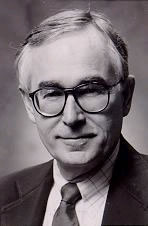
John Ferling Ph.D., West Virginia 1971; Professor
The American Revolution is an era that in my judgment should span the period from 1763, when the French and Indian War ended, to 1800, when Jefferson was elected President of the United States.
It was a crucial period because it was the first time when Americans came to see themselves as Americans, not as Britishers who lived in America, and when they asked themselves what sort of society and political system they wished to have. Other than a shared perception that they wished to be Independent and to establish a republican system, there was widespread disagreement among those who supported separation from the mother country and the War of Independence. Not until 1800 were most of their questions answered. It seems pretty clear to me that the great majority among the Revolutionary generation wanted a national Union, though the reasons they cherished a United States were many and various, and they were deeply divided over how much authority to take from the states and give to the central government. It also seems to me that most believed, as Thomas Paine had written in Common Sense, that the American Revolution was the birthday of a new world. The new epoch that they wished to create was one that would sweep monarchs and titled nobility from power, loosen the bonds of society, and open the way to greater opportunities, so that a man (and I mean "man" quite literally) could rise as high as his merits could take him.
That age left us with two documents that remain crucial today -- the Constitution, our fundamental charter, and the Declaration of Independence, with its ringing message of liberty -- with many notable participants who continue to inspire, from the obvious Founding Fathers to obscure farmers, workers, and soldiers who struggled and sacrificed to win Independence and achieve the new world.
One final thing. The way we celebrate the American Revolution today can tell us much about ourselves, for in celebrating certain participants and neglecting others, or in recollected some ideas and avoiding others, or in focusing on some events while obscuring others, we can see our values, as well as those in charge of the commemoration.